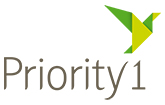Early retirement planning never hurt anyone. Here is the steps many of his 50-something clients take in order to make the best retirement plans.

Retirement planning strategies
Financial advice isn’t about making the most money all of the time. It’s about coming up with solutions and strategies to help you meet your personal goals.
When to plan for retirement
When people hit their 50s, those strategies are often around retirement lifestyle.
Someone asks you the best way to get to Docklands from Melbourne. You can run, drive, or jump on a bus or bike to get there. They’re all viable and an adviser will help work out what’s best for you, your budget, your family and your values.
The statement of advice is the client’s comprehensive game plan to achieve all the things they want to do. There will be about 20 pages that are very specific to your situation. It explains what you need to do to achieve your goals with various scenarios modelled – your current position versus your proposed position. If there’s more than one valid strategy you’ll be able to see them all, with an explanation of why one was chosen over the others.
A comfortable retirement
Heading towards retirement, you and your adviser need to work out what levers to pull in the coming years. Key questions that need answering are “what do you want your retirement to look like?” and “when do you want to retire?”.
The answers vary enormously.
You might say, ‘I want to continue living near my grandkids and buy a caravan for long road trips’. Or ‘I need $60,000 a year for the rest of my life’. The advisers job is to take all the things that require money as the basis of a smart retirement plan.”
Work backwards
The backbone of an effective financial plan is your cash flow, so the first step is to do an honest budget.
The adviser’s job is to work out the details of what’s possible. Once we understand your cash flow, we can work backwards from your goals. Basically, we make sure the you know that if you spend just $x per week and invest $x per week for the next six years, you’ll achieve the retirement they want. If you commit to that, the rest of the plan takes care of itself.
A budget calculator is another way of tracking your spending. Clients usually find living within their new budget very achievable: It just takes some basic habit tweaking. It could be as simple as deciding to put your future first. By that we mean every time you get paid, let’s invest more or use some to reduce your debt. What’s left over is your spending money.
As a society, we do the opposite. We spend first and what’s leftover we invest. Can you guess what’s left over for most people at the end of every pay cheque? Nothing. An adviser can help change that.
Facing facts
Some clients need a reality check.
We might have to say ‘You know what? You actually can’t stop working now. We need you to work part-time for three more years’. They see it as, ‘All right, I’ll work three more years to have $60,000 a year for the rest of my life and leave some money to the kids’.”
Try to automate your finances: “It ticks along in the background and review every year to make sure we are still comfortable with everything.”
Downsizing is a consideration for many. We have observed that most won’t downsize until they have to. It’s possibly an option for the future. At the moment, they may be looking at an income of $30,000 to $50,000 in retirement. But if they downsize in 10 years’ time, we’ll look at the impact on any age pension, their ability to contribute to super, income tax and the retirement income needed.
Most people will find there are three or four possible financial strategies they can implement in their 50s. Giving advice isn’t about the size of your nest egg.
It’s about planning to use whatever you have to achieve the retirement you want. Getting advice around your budget and the strategy that will really deliver for you are the keys the best financial advice can give you.
With so many options, it’s a good idea to seek help to ensure you’re investing in a way that suits you. You can talk to us today on 03 9725 9078.
